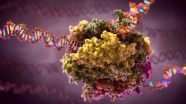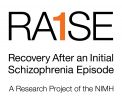More evidence for impact of lung cancer targeted therapy from practice-changing trial
2014-12-04
(Press-News.org) Some patients with non-small cell lung cancer (NSCLC) have changes in the anaplastic lymphoma kinase (ALK) gene, which can drive the development of their cancer. A drug recently developed by Pfizer, crizotinib, targets ALK and is currently given to patients with ALK positive lung cancer when their cancer has worsened after initial chemotherapy. Now doctors have investigated the use of crizotinib in patients with ALK positive lung cancer who have not yet received any chemotherapy treatment.
Dr Fiona Blackhall, a senior lecturer in The University of Manchester's Institute of Cancer Sciences and a consultant based at The Christie NHS Foundation Trust - both part of the Manchester Cancer Research Centre - said: "In order to introduce precision medicine, where each cancer patient receives treatment designed to target the genetic makeup of their individual cancer, we need to compare how effective the new targeted treatment is compared to standard chemotherapy treatment."
The latest study, published in the New England Journal of Medicine, involved 343 patients with previously untreated ALK-positive advanced NSCLC. It showed that those patients who received crizotinib did better with respect to improvement in symptoms and delay in growth of the cancer than those on standard chemotherapy. Also the new targeted drug had no unexpected side effects.
The research team are now waiting for more mature data from the study to see whether crizotinib also improves overall survival in this patient group.
"There is growing evidence that such targeted therapies can offer greater hope to lung cancer patients. Around 1,600 people are diagnosed with non-small cell lung cancer in Greater Manchester every year and a proportion of these patients will have the ALK-positive type. Our study findings could change the way we treat these patients," added Dr Blackhall.
INFORMATION:
ELSE PRESS RELEASES FROM THIS DATE:
2014-12-04
New York | Heidelberg, 4 December 2014 Studying the motion of electrons in a disordered environment is no simple task. Often, understanding such effects requires a quantum simulator designed to expose them in a different physical setup. This was precisely the approach adopted by Denis Makarov and Leonid Kon'kov from the Victor I. Il'ichev Pacific Oceanological Institute in Vladivostok in a new study published in EPJ B. They relied on a simulator of electronic motion subjected to noise stemming from a flux of sound waves.
Their findings could lead to semi-conductor devices ...
2014-12-04
A new, innovative "dashboard" from the National Institute of Standards and Technology (NIST) won't help you drive your car, but it will help enable reproducible research in biology.
In a recent paper in the journal Nature Communications,* an international multi-laboratory team demonstrates a new software tool, the "erccdashboard," to evaluate the performance of experimental methods used to study gene expression. The analysis tool is designed for use with RNA spike-in controls developed by the NIST-hosted External RNA Controls Consortium (ERCC**). These ERCC controls are ...
2014-12-04
Scientists from the Institute of Zoology with the Chinese Academy of Sciences have devoted years of their careers to study the astounding diversity hidden in the depths of the Xishuangbanna tropical rain forests. In a recent paper published in the open access journal ZooKeys Prof. Shuqiang Li and his team reveal 30 new spider species, which constitutes a minor share of what is yet to be found in this biodiversity hotspot.
Xishuangbanna is situated in the southern part of Yunnan with the Lancang (Mekong) River flowing through it. The region is well-known for its rich biodiversity ...
2014-12-04
Los Angeles, CA (Nov 4, 2014) Most women can make all the milk their baby needs, but some mothers turn to medications to help increase their supply. While some specialists encourage the off-label use of domperidone to stimulate breast milk production, some studies have suggested it may be related to negative side effects, including irregular heartbeat and sudden cardiac death. In a new article out today, researchers concluded that although domperidone can increase breast milk production, and there is no known risk to the babies who drink the milk, risks to women are still ...
2014-12-04
Cancers are due to genetic aberrations in certain cells that gain the ability to divide indefinitely. This proliferation of sick cells generates tumors, which gradually invade healthy tissue. Therefore, current therapies essentially seek to destroy cancer cells to stop their proliferation. Through high-throughput genetic sequencing of glioblastoma cells, one of the most deadly brain tumors, a team of geneticists from the University of Geneva's (UNIGE) Faculty of Medicine discovered that some of these mutations are caused by supplemental extrachromosomal DNA fragments, called ...
2014-12-04
PULLMAN, Wash.--Washington State University researchers have detailed the role of localized climate change in one of the great mysteries of North American archaeology: the depopulation of southwest Colorado by ancestral Pueblo people in the late 1200s.
In the process, they address one of the mysteries of modern-day climate change: How will humans react?
Writing in Nature Communications, WSU archaeologist Tim Kohler and post-doctoral researcher Kyle Bocinsky use tree-ring data, the growth requirements of traditional maize crops and a suite of computer programs to make ...
2014-12-04
This news release is available in French. A new technology that reveals cellular gene transcription in greater detail has been developed by Dr. Daniel Kaufmann of the University of Montreal Hospital Research Centre (CRCHUM) and the research team he directed. "This new research tool offers us a more profound view of the immune responses that are involved in a range of diseases, such as HIV infection. At the level of gene transcription, this had been difficult, complex and costly to do with current technologies, such as microscopy," explained the University of Montreal ...
2014-12-04
The first scientific evidence of frankincense being used in Roman burial rites in Britain has been uncovered by a team of archaeological scientists led by the University of Bradford. The findings - published today in the Journal of Archaeological Science - prove that, even while the Roman Empire was in decline, these precious substances were being transported to its furthest northern outpost.
The discovery was made by carrying out molecular analysis of materials previously thought to be of little interest - debris inside burial containers and residues on skeletal remains ...
2014-12-04
Vienna, Austria - 04 December 2014: Non-ergot derived dopamine agonists used to treat Parkinson's disease may be safe for the heart, according to preliminary research presented at EuroEcho-Imaging 2014 by Dr Hilal Erken Pamukcu, cardiologist at Ankara Diskapi Education and Research Hospital in Turkey.
EuroEcho-Imaging is the annual meeting of the European Association of Cardiovascular Imaging (EACVI), a registered branch of the European Society of Cardiology (ESC), and is held 3-6 December in Vienna, Austria.
Dr Erken Pamukcu said: "Parkinson's disease is a neurological ...
2014-12-04
Many patients with first-episode psychosis receive medications that do not comply with recommended guidelines for first-episode treatment, researchers have found. Current guidelines emphasize low doses of antipsychotic drugs and strategies for minimizing the side effects that might contribute to patients stopping their medication. A study finds that almost 40 percent of people with first-episode psychosis in community mental health clinics across the country might benefit from medication treatment changes.
Psychosis is a mental disorder in which thoughts and emotions ...
LAST 30 PRESS RELEASES:
[Press-News.org] More evidence for impact of lung cancer targeted therapy from practice-changing trial


